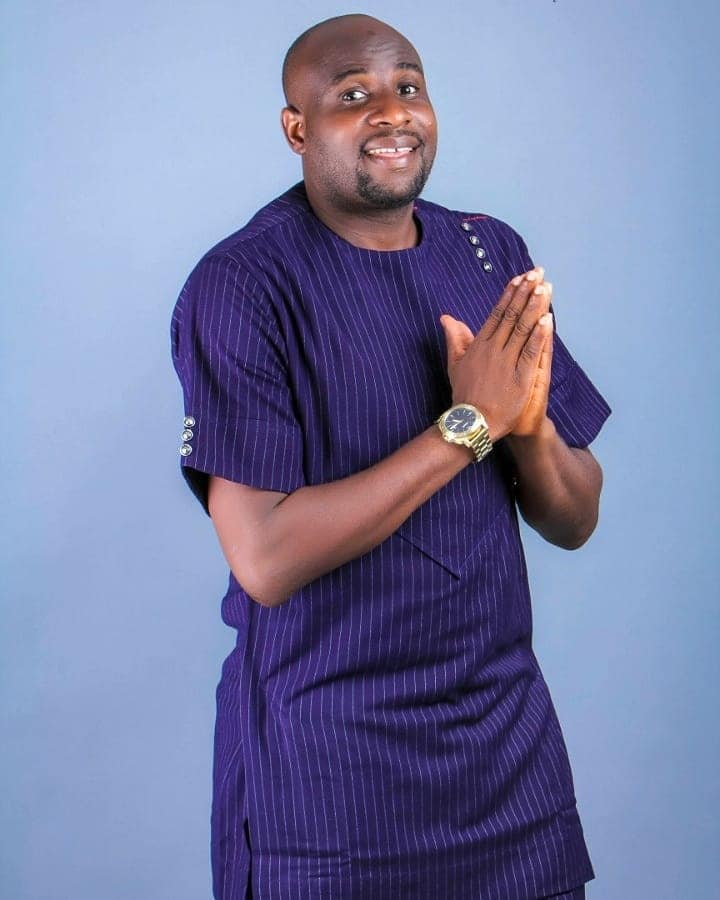
As the Nigerian film industry continues to gain global recognition, it is imperative to acknowledge the challenges that hinder its growth. In this exclusive interview with MUTIAT LAWORE, renowned actor, director, and producer, Tope Adebayo Salami, shared his wealth of experience and expertise, provide a unique perspective on the challenges facing Nollywood among thers.
How has your father’s involvement in filmmaking shaped your life and craft?
My father’s involvement in filmmaking has had a profound impact on my life and career. Growing up, I was exposed to the behind-the-scenes of filmmaking, and I learned so much from him. He taught me the importance of hard work, dedication, and attention to detail. He also instilled in me a passion for storytelling and a love for the craft. As a director, I’ve had the opportunity to work with him on several projects, and I’ve learned so much from his experience and expertise.
What are the challenges of working on the same set with your father, Adebayo Salami and brother, Femi Adebayo?
Working with family members can be challenging, but it’s also a blessing. Growing up, I’ve had the opportunity to learn from my father, Adebayo Salami, who is a veteran in the industry. When we work together, I have to separate our family relationship from our professional one. It can get intense, but we always find a way to make it work. My brother, Femi Adebayo, is also a talented actor and director, and we’ve collaborated on several projects. We have our disagreements, but at the end of the day, we’re family, and that bond is unbreakable.
How will you describe the role of a director and their relationship with various artistes?
As a director, my role is to bring the script to life and to guide the actors to deliver their best performances. I believe that a good director is one who can collaborate with artistes to create something special. I’ve been fortunate to work with some incredibly talented artistes, and I’ve learned that the key to a successful collaboration is to create a safe and supportive environment where everyone feels valued and respected.
You once said directing Jagun-Jagun almost made you lose your home; how better have you handled managing work with home front?
Ah, yes, directing Jagun-Jagun was a challenging experience, but it was also a valuable learning curve. At the time, I was so focused on the project that I neglected my family and my personal life. It almost cost me my marriage, but thankfully, my wife was understanding and supportive. Since then, I’ve made a conscious effort to strike a better balance between my work and personal life. I prioritise my family time and make sure to communicate effectively with my loved ones. It’s not always easy, but it’s essential for my well-being and my relationships.
If you had not been a creative person, what else would you have ventured into?
If I hadn’t become a filmmaker, I think I would have loved to be an engineer, I studied Electrical Electronics, I love providing technical solutions to issues. This has also helped in making decisions in filmmaking.
Do you agree with the school of thought that those handling the backend of filmmaking like the sound guy, gaffer, makeup artist, etc., need more accolades like the actors do?
Absolutely! The backend crew is the backbone of any film production. Without them, the actors wouldn’t have a platform to shine. The Director of Photography, Sound Recordist, Gaffer, Makeup Artist, Editor, Art Director and other crew members work tirelessly behind the scenes to create the magic that we see on screen. They deserve just as much recognition and accolades as the actors. In fact, I believe that the Nigerian film industry needs to do more to celebrate and reward the contributions of its backend crew.
Two decades in the industry, how has the journey been so far?
It’s been an incredible journey! I’ve been fortunate to have had the opportunity to work on so many amazing projects and to have collaborated with some of the most talented individuals in the industry. There have been ups and downs, of course, but overall, I’m grateful for the experiences I’ve had and the lessons I’ve learned. The Nigerian film industry has come a long way since I started out, and I’m excited to see where the future takes us.
How have you been able to stay relevant knowing how competitive the industry is?
I believe that the key to staying relevant in this industry is to stay curious and keep learning. I make it a point to attend workshops and seminars, to read books and articles, and to stay up-to-date with the latest trends and technologies. I also believe in collaborating with other creatives and seeking out new challenges and opportunities. Finally, I think it’s essential to stay humble and grounded, and to always be open to feedback and constructive criticism.
Despite the various challenges facing the industry, what then is the way forward?
For me, despite the challenges facing Nollywood, I remain optimistic about the future of the industry. “Nollywood has come a long way, and we have made significant progress. However, we need to address the challenges facing us, particularly funding, marketing, and distribution.”
The need for collaboration between stakeholders is essential to overcome the challenges facing Nollywood. “We need to work together as stakeholders, including producers, directors, actors, and investors, to find solutions to our challenges. We also need to engage with the government and private investors to secure funding and support for the industry.”
It is clear that Nollywood faces significant challenges that hinder its growth. However, with the right funding, marketing, and distribution strategies, the industry can overcome these challenges and reach its full potential. For me, Nollywood is a sleeping giant, waiting to be unleashed. With the right support and investment, we can make Nollywood a global brand.
Please follow and like us:


